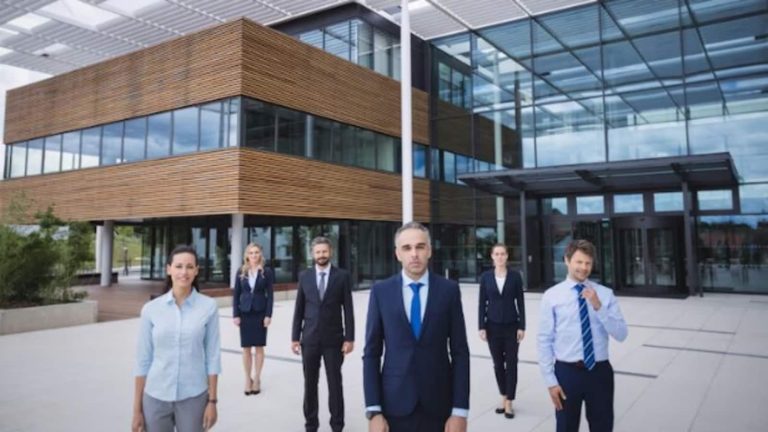(Bloomberg) — Blackstone Inc.’s protracted campaign to raise cash for its flagship buyout fund is finally grinding to a close, beyond schedule and billions of dollars short of initial expectations.
The firm, which began seeking capital in 2022, told investors it will have wrapped up fundraising around the end of March with a little more than $21 billion, according to people familiar with the matter, who asked not to be identified discussing confidential details. Buyout funds that closed in the past year took about half as much time on average.
Blackstone declined to comment.
High borrowing costs have dented the confidence of pension funds and other big investors in private equity’s traditional playbook: buying companies with debt and cashing out at a profit. Industry fundraising declined in 2024 for the third straight year, according to a February report by McKinsey & Co. Blackstone, the world’s largest alternative-asset manager, wasn’t spared.
It began preparing for the fundraising shortly before the Federal Reserve began ratcheting up interest rates to combat surging inflation. The firm faced a crowded field just as institutions had less cash on hand. After telling investors that it planned to complete fundraising by the first half of 2023, Blackstone told them it needed more time and pushed back the schedule to the second half, and then kept the fund open for stragglers.
The firm also tempered expectations about how much it planned to raise. Bloomberg initially reported in late 2021 that the firm could seek as much as $30 billion. In 2023, Blackstone suggested it would collect about $25 billion, on par with its prior fund. By the start of last year, Blackstone said its target was at least $20 billion.
Blackstone, led Chief Executive Officer Steve Schwarzman and his heir-apparent, President Jon Gray, now has another challenge: showing that big buyouts can still deliver market-beating returns as elevated interest rates and President Donald Trump’s trade war threaten a deal revival. Private equity was Blackstone’s second-largest business by assets after credit and insurance at the end of last year.
In a recent change in the buyout team’s leadership, Joe Baratta ceded day-to-day management of the flagship vehicle to oversee all private equity strategies. That paved the way for Martin Brand to take over as the fund’s new chief.
Buyout firms have been struggling to return capital to investors, giving pensions and endowments even less cash to plow back into new funds. Investors became more choosy, taking a harder look at firms’ returns to parse whether they got there because of skill, financial engineering, or dumb luck.
Blackstone’s last buyout fund, which began investing in 2020, ranked in the bottom quartile among peers by internal rate of return, according to MSCI buyout fund data through September. An earlier fund that started doing deals in 2016 landed in the third quartile.
Both funds were in the second quartile by a different measure of returns.
As the fundraising dragged on, some investors drove a tough bargain on fees and terms. In response to some clients’ concerns, Blackstone executives signaled that the firm doesn’t expect to do any deals involving patient-facing health-care businesses in the US, the people said. Big private equity firms were hurt by lackluster performance in that sector and invited scrutiny about whether they’re valuing profit over patients’ well-being.
Blackstone also changed how it allocates deals between funds. Earlier vintages of its global buyout fund invested alongside every deal from its Asia fund and another energy fund. The latest flagship vehicle will only invest alongside the biggest energy and Asia deals. The move creates sharper delineations between the funds’ risks and returns.
In combination, the three private equity strategies are expected to bring in more capital than was raised in their last vintage. Blackstone plans to raise more than $10 billion for its next Asia fund. Its $5.6 billion energy fund wound up larger than its predecessor.
The firm has told investors that having capital at hand will help it take advantage of a market rebound. In 2024, Blackstone made the first investment for the flagship buyout fund with the acquisition of Tropical Smoothie Cafe. It also backed sandwich chain Jersey Mike’s.
During Blackstone’s fourth-quarter earnings conference call in January, Gray said the tenor of the discussions with clients around traditional funds are “feeling far better than it has in several years.”
(Updates with Asia fundraising plans in third-to-last paragraph.)
More stories like this are available on bloomberg.com
Catch all the Business News , Corporate news , Breaking News Events and Latest News Updates on Live Mint. Download The Mint News App to get Daily Market Updates.
MoreLess




